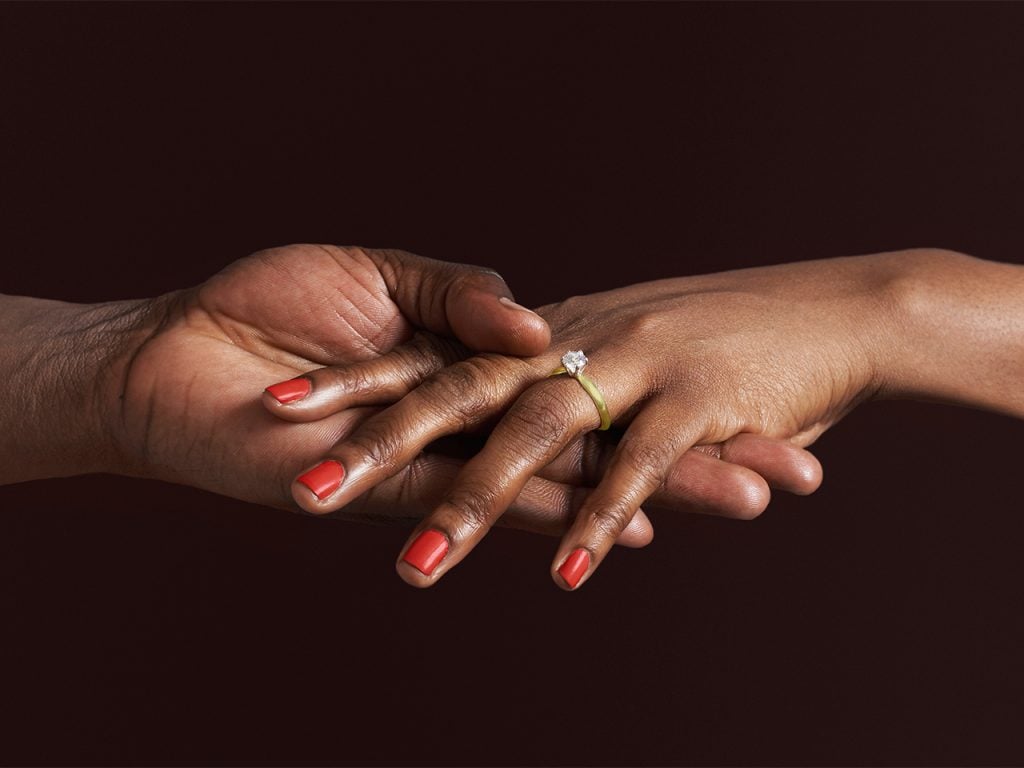'Till Death Do Us Part
"While wedding planners have fashioned an entire industry centered on that 'special day', Canadians themselves appear unconvinced that the day -- or the institution it represents -- is all that special anymore."
Angus Reid Institute report
"You see really significant numbers of people across those age demographics [18 to 34-year-olds] who are not convinced of the importance of marriage, whether it is civil or religious; who are not convinced of its relevance; and who are not convinced its necessity or relevance even when there's a child involved."
"The flattening of that across age demographics -- where you only really see people in the 65-plus age group likely to say that it is important across all those questions -- really stands out. We're now of an age where you see Baby Boomers or Gen-Xers telling their children or their nieces and nephews, 'It's not that important."
Shachi Kurl, executive director, Angus Reid Institute
/https://www.thestar.com/content/dam/thestar/vancouver/2018/05/07/on-marriage-most-canadians-say-i-dont-poll/skytrain_wedding_2.jpg) |
| Vancouver couple Nathaly and Jeff Nairn arrive at the Waterfront station following their wedding on a SkyTrain platform. (Jennifer Gauthier/ For StarMetro) |
How social convention changes over time! The sanctity of the marriage bond is no longer regarded as a 'must-do' for people deciding to spend the rest of their lives together. At least in Canada. Perhaps this is as much a reflection of the fact that divorce is readily attainable and so many marriages end up in separation and divorce, with or without children. Perhaps it's an indication that in such a distracted, busy lifestyle there's little patience for ceremonies that are costly and all too often temporary, and with such short attention spans prevailing in the general population it's just a nuisance factor.
So people, getting on with life, give short shrift to the customs of yore, with their heritage value and religious overtones in societies shifting inexorably away from organized religion. The poll undertaken by the Angus Reid Institute identified patterns reflecting the variant values of defined age groups. Where 18- to 24-year-olds and people over 65 appear to reverse the national trend in clear majorities feeling marriage is "very important", or "somewhat important" in their estimation, to consolidate romantic partnerships.
All women appear, irrespective of which age group they're in, to claim that in their opinion marriage is of least importance in a committed relationship, matching the opinion of men in general. Men over 55 years of age, feel the opposite. And nor do unmarried couples with children feel any different; for they too state that marriage is "not that important" or "not important at all" for a legal marriage to take place in circumstances where children are involved, any more than when there are no children in a conjugal relationship.

Among people between the ages of 35 to 44, that marriage-negative response represents the majority, reversed in the age range over 65 where, perhaps predictably, that age group feel positive about the importance of marriage in a family situation; upholding a tradition supported by religious advisers advocating for the sanctity of the marriage vows and the stability and legality offered to offspring. Among visible minorities, people are far likelier to regard the institution of marriage as important.
Those differences aside, the aggregate rule the day; the cultural-social importance that marriage was once held to have is negated in Canada where over one-fifth of all couples now live common law, according to Statistics Canada, representing a greater than three times rate than in 1981. In addition, one-person households have become the most common type of households for the first time, surpassing those households of couples with children.
In 1971 among 18- to 34-year-olds who married, there was a 56 percent margin, which has now, since 2011, descended to 22 percent.

This is not a North American phenomenon; there is an observable difference between Canadian and American attitudes to marriage. The Angus Reid poll used questions previously asked by Pew Research in the United States, to enable them to measure the differences. American results indicated a much more robust sense of the importance of marriage to couples intending to spend their lives together; over two-thirds of Americans responded that marriage was important to them, with half claiming it to be "very" important.
And while two thirds of Canadians feel that society does just as well should people cling to priorities other than marriage and children, their American counterparts shared that view by only 50 percent of the population.
 |
| Photo, Roy Hsu |
Labels: Canada, culture, Marriage, United States, Values

0 Comments:
Post a Comment
<< Home